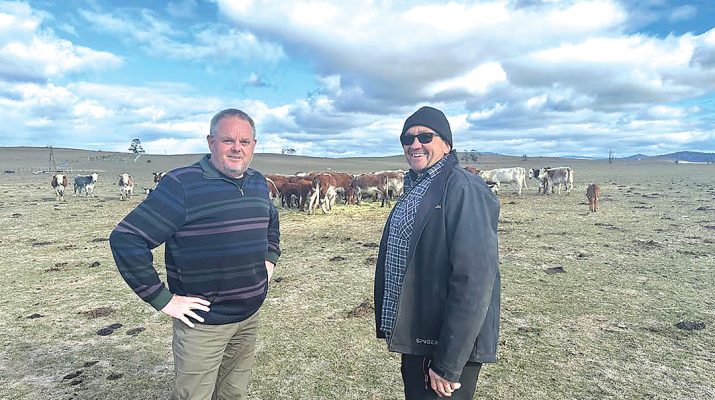AT least 31 Agriculture Victoria staff working on biosecurity, weed and pest control will lose their jobs by year’s end, and the Plant Production Sciences Branch, home to researchers specialising in agronomy, genetics and allied fields, has been made redundant.
These roles underpin on-farm biosecurity advice, surveillance and rapid response capacity during outbreaks. Industry warns that this lost capability will be costly and slow to restore.
The state Nationals MP for Gippsland East, Tim Bull, said the cuts would hurt regional communities and were yet another symptom of a government stripping back services that benefit the bush to service debt racked up on costly city-based projects.
“This is the latest round of cutbacks on top of fisheries officers, Parks Victoria and Department of Energy Environment and Climate Action positions and all because we have a government with debt heading to $192 billion, with interest repayments alone of $28 million a day,” he said.
“I don’t oppose a leaner public service, but savings should come from the endless army of spin doctors the Labor Government employs, not from front-line services that directly support our communities.
“And don’t forget, this is the same government that said earlier this year it would not cut any front-line staff.”
According to a Weekly Times report, information sent to staff says the redundancies are part of “a strategic shift towards strengthening research and innovation,” but will involve “some reduction and realignment … reducing science capability in some areas”. The memo states Agriculture Victoria’s Plant Production Sciences Branch will be “dissolved”, with a “scale back of science capabilities in crop agronomy, hydrogeology, plant functional genomics and spatial data sciences”.
Seventeen scientists’ roles are listed as “proposed no longer required”, while six new positions will be created as part of the overhaul.
The Opposition agriculture spokeswoman, Emma Kealy, said the harsh reality is that the Premier’s latest cuts are targeting Victoria’s outstanding team of agricultural research scientists.
The Agriculture Victoria staff reductions follow a steep slump in the number of properties inspected for invasive pests and weeds – from 4989 in 2012-13 to just 1440 in 2024-25.
Mr Bull said this latest round would mean even worse outcomes. “They are basically surrendering the fight against invasive weeds. If they were going to cut anything, it should be the very expensive brumby-culling program, which many in our community oppose,” he said. “I have not yet had confirmation on whether that is continuing.”

